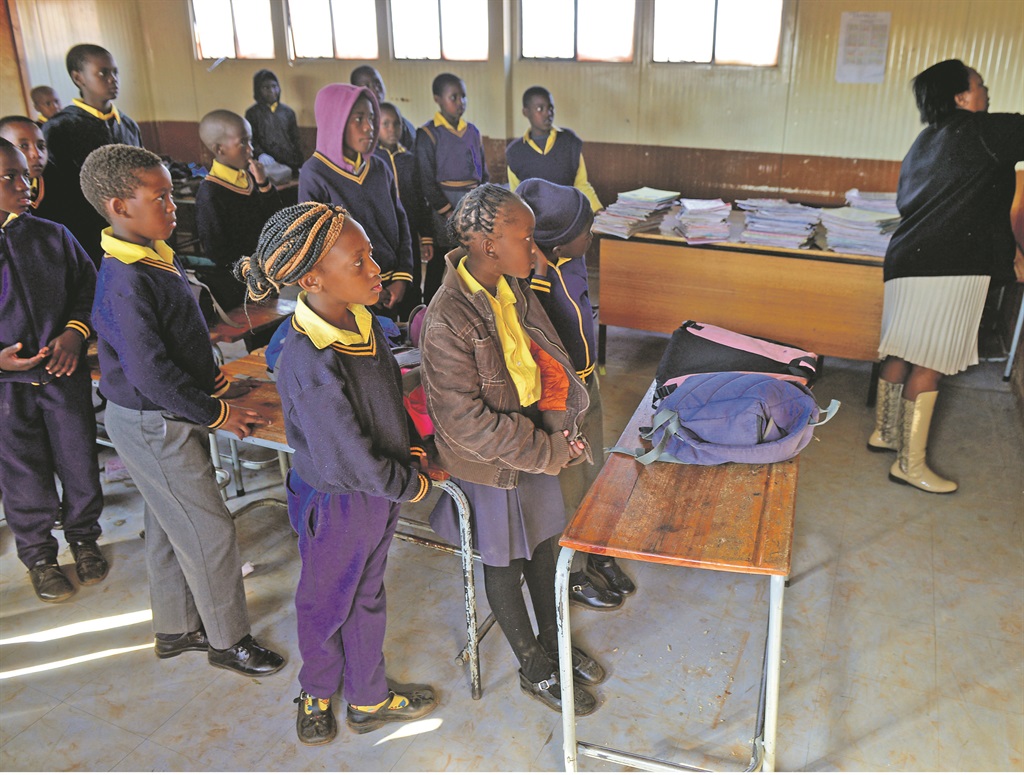
Most South African youngsters are set up to fail.
In my years working with young people in townships, I have consistently witnessed pupils selecting tertiary study opportunities based on their perceived earning power and social status.
They want to be doctors, lawyers, psychologists or any other career they believe to be prestigious. And, in a country like South Africa, where the winners win big, who can blame them?
Technical Vocational Education and Training (TVET) colleges are considered as low status and few pupils know about learnerships and apprenticeships, but with South African universities only able to accommodate 20% of our young people, the odds are stacked against students.
Funnelled through an education system designed to sort those most capable of abstraction from the rest, pupils hold a narrowly defined notion of success centred on acceptance into university.
And, for township learners in particular, the idea of admission is laden with the expectation of gainful employment and an opportunity to improve their family’s living conditions.
However, the sad reality is that the majority of these young people will not meet the necessary entry criteria and, in fact, do not know what these criteria are. And for those who do make it in, acceptance is only the first of their hurdles as, even though the chances of gaining entry to university have improved for our black young people, almost half will drop out, often as a result of improper career guidance.
For those coming from poorer communities, high school education is seen as the pathway straight to university, with little consideration given to learners’ interest, their capabilities and their school grades.
Learners are encouraged to “dream big” with no regard as to what is achievable, given their aptitude, marks or what universities actually offer.
Of course, with research showing that young people with a tertiary qualification have much lower unemployment rates – as low as 2% for white graduates and 6% for black graduates, results that are very flattering in comparison with the 29% unemployment rate of learners with only a matric – the desirability of such a qualification is understandable, but without the proper support, learners are left to make unrealistic decisions about their study and career choices, and unwittingly place themselves at centre stage of an unfortunate situation.
Ill-prepared for the new type of academic learning on offer, many students enrolled for university courses they are not suited to and show poor academic performance or fail their courses.
Their dreams of success and opportunity quickly turn into nightmares as they shoulder the cost of a large government loan and the shame of having to face their friends and family.
Buried under this enormous disappointment and debt, learners are prevented from discovering and harnessing their true potential and finding suitable education and training opportunities – ones that align with their strengths and interests and also allow them to support their families.
While organisations such as the SA Education and Environment Project (SAEP) run successful programmes designed to assist and support students from lower socioeconomic backgrounds to enrol and remain in tertiary institutions, what is needed is a nationwide shift in our approach to career guidance.
Learners need more than information to make appropriate career choices; they need engagement and support.
Too often career guidance is limited to the life-orientation curriculum and forms a small part of the syllabus presented by teachers who are not career guidance practitioners.
We need to move away from this state of passivity to a much more engaged approach, where learners’ career choices and the viability of their plans are followed up on and explored.
High schools and tertiary institutions of all kinds need to work in tandem to ensure that learners have adequate information that shows a variety of pathways and study options. We need alternative stories.
The university dream is not the only story of success that exists.
We need learners and young people to engage with the stories of their peers who have found success studying at TVET colleges or through learnerships or apprenticeships.
We need to widen the net to catch more students.
Jansen is the tertiary support manager for the SAEP, an organisation that supports and motivates children and young people in need to thrive through education, life skills and psychosocial support. The SAEP Bridging Year Programme prepares recent matriculants for tertiary study and the SAEP Tertiary Support Programme assists at-risk students in tertiary institutions to graduate.
Visit saep.org or follow them on Facebook




 Publications
Publications
 Partners
Partners








